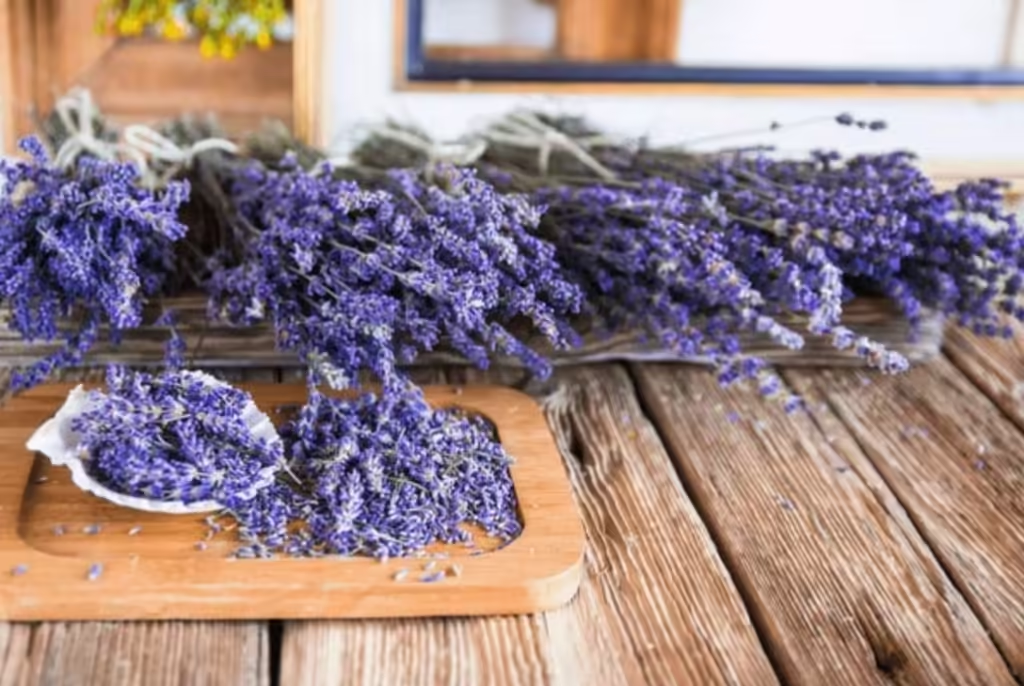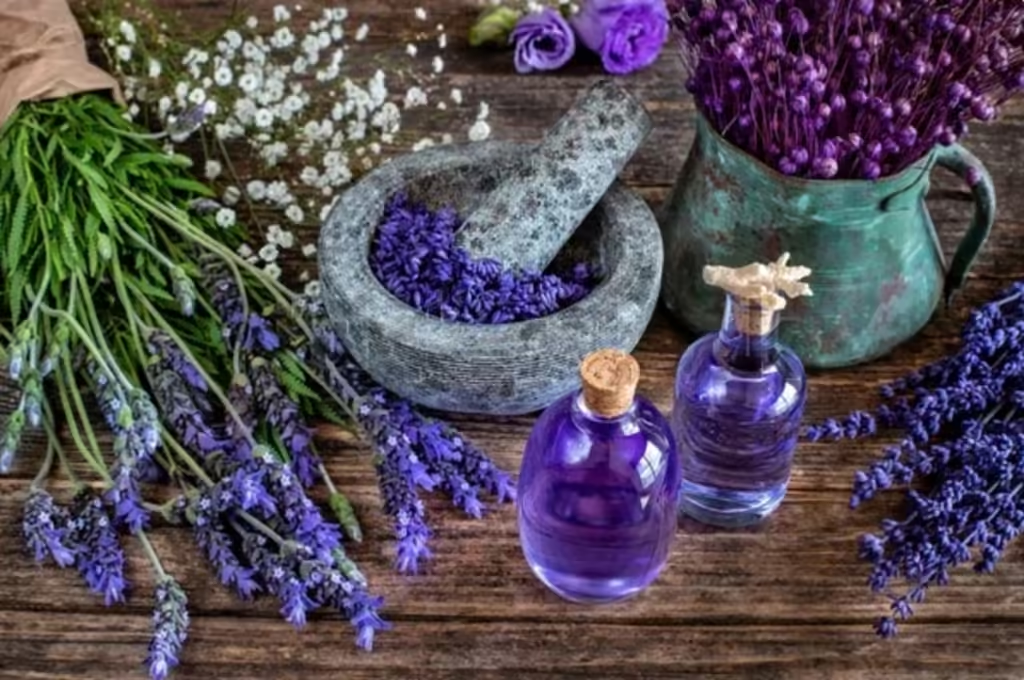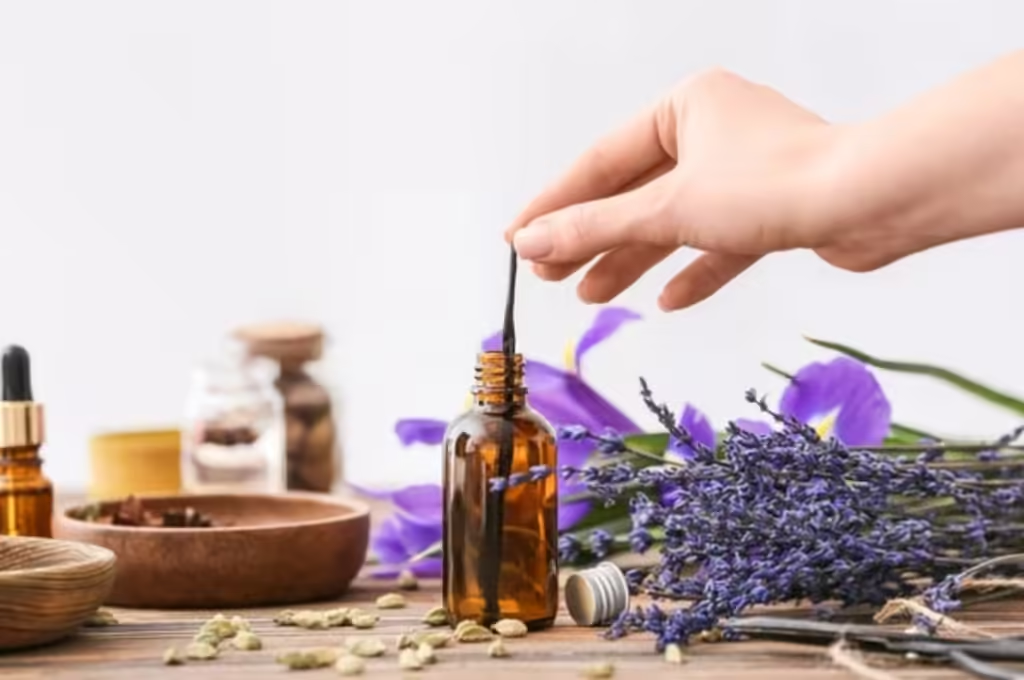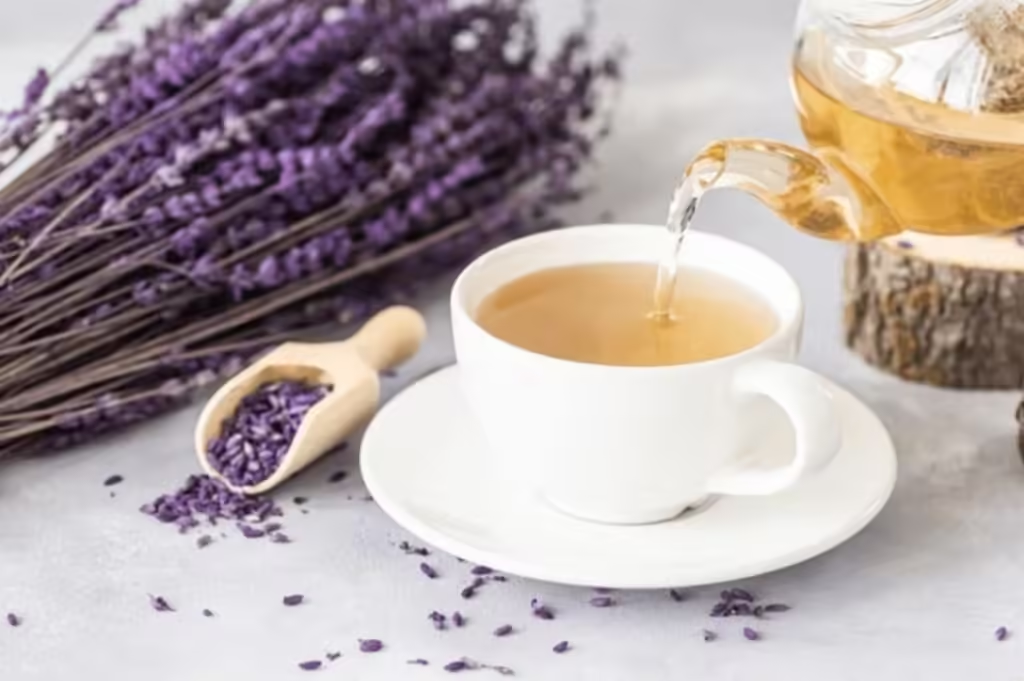Lavender, with its captivating fragrance and striking purple flowers, is more than just a pretty plant. Known scientifically as Lavandula, lavender has been used for centuries in various cultures for its medicinal and therapeutic properties. This article explores the myriad health benefits and uses of lavender, providing insights into how this versatile plant can enhance your well-being.
What is lavender?
Lavender, a member of the mint family, is native to the Mediterranean region. Today, it is cultivated worldwide for its essential oil, which is extracted from the flowers through steam distillation. Lavender oil is a popular ingredient in aromatherapy, cosmetics, and natural health products. Let’s delve into the specific health benefits and uses of lavender.

Nutritional Profile of Lavender
Although lavender is primarily known for its aromatic and therapeutic properties, it also boasts a modest nutritional profile when used in culinary applications. Lavender contains vitamins and minerals that contribute to its overall health benefits.
- Vitamins: Lavender is a source of vitamins A and C. Vitamin A is essential for vision, immune function, and skin health, while vitamin C is a powerful antioxidant that helps protect cells from damage and supports the immune system.
- Minerals: Lavender contains small amounts of calcium and iron. Calcium is crucial for bone health, while iron is necessary for oxygen transport in the blood.
- Phytochemicals: Lavender is rich in phytochemicals, including polyphenols and terpenes, which have antioxidant and anti-inflammatory properties.
Health Benefits of Lavender
1. Reduces Anxiety and Stress
Lavender is renowned for its calming effects. Studies have shown that inhaling lavender essential oil can significantly reduce anxiety and stress levels. The soothing aroma of lavender helps to relax the mind and body, making it an effective natural remedy for those dealing with anxiety disorders or high-stress levels.
2. Improves Sleep Quality
Lavender has been traditionally used to improve sleep quality. Its sedative properties make it a popular choice for treating insomnia and other sleep disorders. Research indicates that lavender aromatherapy can enhance sleep quality, making it easier to fall asleep and stay asleep through the night.
3. Alleviates Headaches
Lavender oil is a natural remedy for headaches and migraines. Applying diluted lavender oil to the temples and forehead or inhaling its scent can help reduce headache intensity and frequency. Its anti-inflammatory and analgesic properties contribute to this benefit, providing relief without the need for over-the-counter medications.
4. Promotes Skin Health
Lavender oil has numerous benefits for the skin. Its antimicrobial and anti-inflammatory properties make it effective in treating acne, eczema, and psoriasis. Additionally, lavender oil can speed up the healing of wounds, cuts, and burns by promoting cell regeneration and reducing the risk of infection.
5. Relieves Pain
Lavender is known for its analgesic properties. It can be used to alleviate various types of pain, including muscle aches, joint pain, and menstrual cramps. Massaging lavender oil onto the affected areas can help reduce pain and inflammation, providing natural relief.
6. Supports Digestive Health
Lavender has been used to support digestive health. It can help alleviate symptoms of digestive issues such as bloating, nausea, and indigestion. Consuming lavender tea or inhaling its aroma can stimulate the production of gastric juices, improving digestion and relieving discomfort.
7. Boosts Immune System
Lavender oil has antimicrobial properties that can help boost the immune system. Its antiviral and antibacterial effects make it effective in preventing infections and illnesses. Incorporating lavender oil into your routine, such as through diffusing or topical application, can help strengthen your body’s natural defenses.

Uses of Lavender
1. Aromatherapy
One of the most popular uses of lavender is in aromatherapy. Diffusing lavender oil in your home can create a calming environment, reduce stress, and improve mood. It is also used in massage therapy to enhance relaxation and relieve muscle tension.
2. Skincare Products
Lavender is a common ingredient in skincare products due to its soothing and healing properties. It can be found in creams, lotions, soaps, and serums designed to treat various skin conditions and promote a healthy complexion. DIY lavender-infused oil or homemade lavender face masks are also popular for personal skincare routines.
3. Hair Care
Lavender oil can improve scalp health and promote hair growth. It helps to balance natural oils, soothe dry or itchy scalp, and reduce dandruff. Adding a few drops of lavender oil to your shampoo or conditioner can leave your hair smelling fresh and feeling nourished.
4. Culinary Uses
Lavender is not just for health and beauty; it also has culinary applications. Culinary lavender can be used to add a unique flavor to baked goods, desserts, and beverages. Lavender-infused honey, teas, and syrups are popular culinary creations that provide a subtle floral note to various dishes.
5. Household Uses
Lavender’s pleasant scent makes it a popular choice for household uses. It can be used to make natural air fresheners, potpourri, and linen sprays. Placing sachets of dried lavender in closets and drawers can keep clothes smelling fresh and repel moths.

How to Use Lavender Safely
While lavender is generally safe for most people, it is important to use it correctly to avoid potential side effects. Here are some tips for safe use:
- Dilution: Always dilute lavender essential oil with a carrier oil (such as coconut or jojoba oil) before applying it to the skin.
- Patch Test: Perform a patch test before using lavender oil topically to ensure you do not have an allergic reaction.
- Inhalation: Use a diffuser or inhalation method to enjoy the aromatherapy benefits of lavender.
- Consult a Professional: If you are pregnant, breastfeeding, or have any medical conditions, consult a healthcare professional before using lavender.
Conclusion
Lavender is a versatile and powerful plant that offers a wide range of health benefits and uses. From reducing anxiety and improving sleep to promoting skin health and relieving pain, lavender can enhance your overall well-being in many ways. Incorporating lavender into your daily routine can provide natural and effective solutions for various health and wellness needs. Whether used in aromatherapy, skincare, or culinary applications, lavender continues to be a cherished herb with timeless appeal.
Topics covered
- What is Lanvender?
- What are key nutrients in Lanvender?
- What are health benefits of Lavender?
- How to use Lavender?
- Precautions while using Lavender.








1 thought on “Beyond Fragrance: The Unexpected Nutritional Benefits of Lavender”